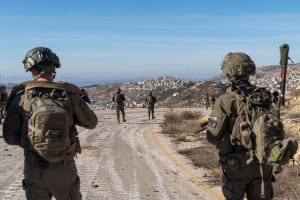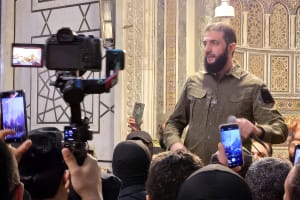West shows concern over foreign jihadists in Syria’s new leadership

Western powers, including the United States, Germany, and France, have reportedly expressed concern over Syria's new Islamist government's decision to appoint foreign jihadists to senior military positions, according to informed sources.
In response, Western envoys are attempting to persuade the new Syrian leader, Ahmed al-Sharaa, also known as Mohammed Abu al-Jolani, who leads the Hay'at Tahrir al-Sham (HTS) government, to reconsider.
One individual identified as a jihadist, Murhaf Abu Qasra, has reportedly been appointed defense minister in the interim Syrian administration. Al-Jolani has already allegedly issued approximately 50 military appointments in December 2024, including at least six foreign jihadists from Egypt, Jordan, Turkey and even China.
Al-Jolani, who was previously affiliated with the radical Islamist terrorist organization Al Qaeda, has tried to rebrand himself as a reformed moderate who has cut ties with his radical jihadi past.
The Biden administration communicated its concerns during a meeting between the U.S. Envoy Daniel Rubinstein and al-Jolani on Wednesday in Damascus.
"These appointments will not help them with their reputation in the US," a U.S. official said.
"Discussions have been constructive and have covered a wide range of domestic and international issues," a U.S. State Department spokesperson reported, adding that Washington noted "tangible progress on counter-terrorism priorities, including ISIS."
During a meeting in early January, French Foreign Minister Jean-Noël Barrot and his German counterpart Annalena Baerbock, communicated similar messages to the new Syrian leaders.
Egypt, Jordan, and several Gulf states have voiced concerns about the appointment of foreign jihadists to key positions in Syria's new government. These nations fear that such appointments could embolden Islamist extremists across the volatile Middle East region.
Aaron Zelin, a senior fellow at the Washington Institute for Near East Policy, commented, "Maybe this is a middle path that works for everybody, and hopefully leads to nothing happening outside of the country, but also, they have become sort of part of Syrian society now. But I imagine there will still be risks locally, as well as concerns globally."
Israeli leaders are also skeptical about the new Islamist leadership in Syria.
“The reality in Syria hasn’t stabilized,” Israeli Foreign Minister Gideon Sa’ar stated in late December. “The regime in Damascus is essentially a gang – not a legitimate government. Other areas, like Idlib, are controlled by Islamist groups with extreme ideologies.”
Al-Jolani has said his regime does not seek any conflict with the Jewish state.
Last month, Mosab Hassan Yousef, the son of former Hamas leader, warned that al-Jolani could potentially establish a powerful terrorist state in the middle of the Middle East.
“He tends to build it slowly, mindfully, and patiently," Yousef said of al-Jolani. “This global terrorist didn't integrate from a Jihadi to a statesman, he transformed himself from a simple Jihadi to a modern-day Islamic Khalife, and allowing him to thrive will have deadly consequences on humanity.”

The All Israel News Staff is a team of journalists in Israel.
You might also like to read this:
















